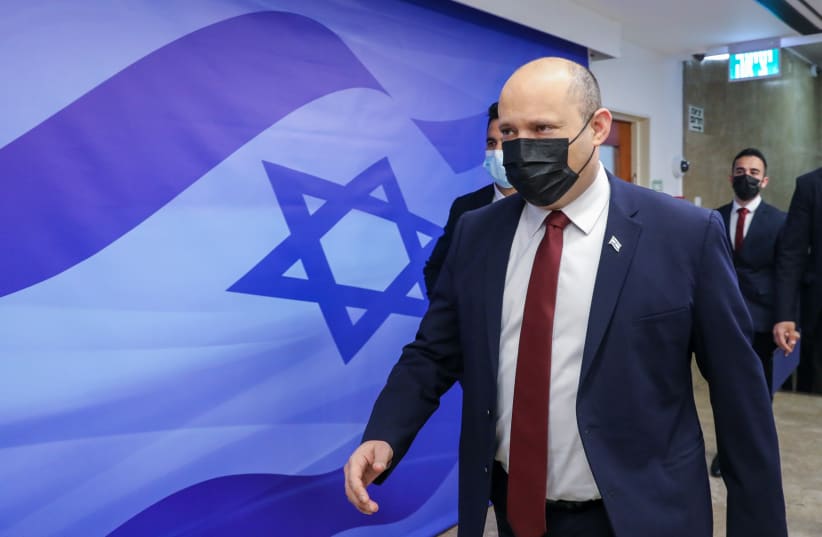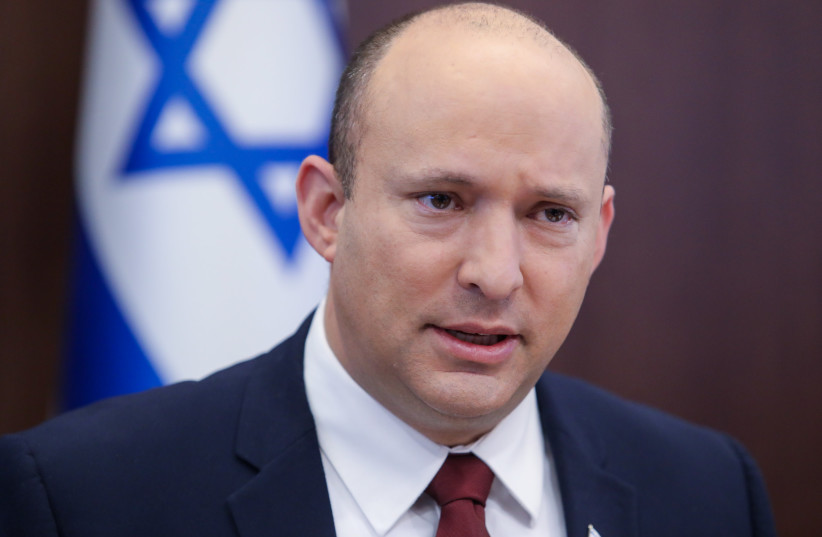The MKs in Prime Minister Naftali Bennett’s governing coalition celebrated the passage of the state budgets for 2021 and 2022 over the weekend, but disagreements over a dozen sensitive issues that were postponed until after the budget will soon cause internal disputes.
Bennett and Lapid declined to address the key issues in their joint news conference on Saturday night, preferring to only say that the issues would be resolved in a meeting of party leaders that would take place soon. But sources close to Bennett and Lapid admitted on Sunday night that no timetable had been set for such a meeting, and they were in no hurry to convene it.
“There is no specific timing,” a Lapid associate said. “Every issue will be considered on its own.”
But sources in other coalition parties said they would insist that such a meeting be held in order to ensure the kind of give and take that would allow each coalition party to claim it had served its voters.
The first post-budget disputes have emerged over settlements. After Public Security Minister Omer Bar Lev (Labor) criticized Bennett on the issue of the Evyatar outpost, Meretz MKs Mossi Raz and Gabi Laski wrote Bennett, warning him that Construction Minister Ze’ev Elkin’s plans to build in the Jordan Valley crossed their red line.
Labor intends to push for a change in the Finance Ministry’s preferred communities list, taking out wealthy communities in Judea and Samaria and adding more communities in the Galilee and Negev that would receive special benefits.
Meretz MKs were also disturbed by Bennett and Lapid dismissing the possibility of America reopening its consulate in Jerusalem that served the Palestinian Authority before it was closed by US President Donald Trump.
Among the issues of which Bennett remains undecided is the submarine affair probe of former prime minister Benjamin Netanyahu initiated by Defense Minister Benny Gantz (Blue and White), and the bill aimed at preventing Netanyahu from forming another government, which will be advanced by Justice Minister Gideon Sa’ar (New Hope).
Matters of religion and state are also expected to be red button issues in the months ahead, with Gantz intending to advance plans to draft yeshiva students, Religious Services Minister Matan Kahana (Yamina) tackling conversion, and Transportation Minister Merav Michaeli (Labor) ensuring that a light rail being built through Tel Aviv will run on Shabbat. Kahana also said two months ago that he would also deal with the question of egalitarian prayer at the Western Wall after the budget’s passage.
Other outstanding issues include the controversial citizenship bill advanced by Interior Minister Ayelet Shaked (Yamina) and opposed by Meretz and Ra’am (United Arab List); Sa’ar’s plans to split the role of the attorney-general; and the cannabis bills of New Hope faction chairwoman Sharen Haskel that are opposed by Health Minister Nitzan Horowitz (Meretz).
Bennett’s coalition will face a vote at a special session of the Knesset on Monday on whether it is making too many concessions.
The Religious Zionist Party initiated the session on the topic: “The Bennett-Abbas government is renewing the diplomatic process to divide the land and form a terror state in the heart of Israel.”
Bennett will have to attend the session, at the request of 40 opposition MKs, and then address them. Netanyahu will also speak. They will also both address the Knesset during a session marking the anniversary of the death of Israel’s first prime minister, David Ben-Gurion.

